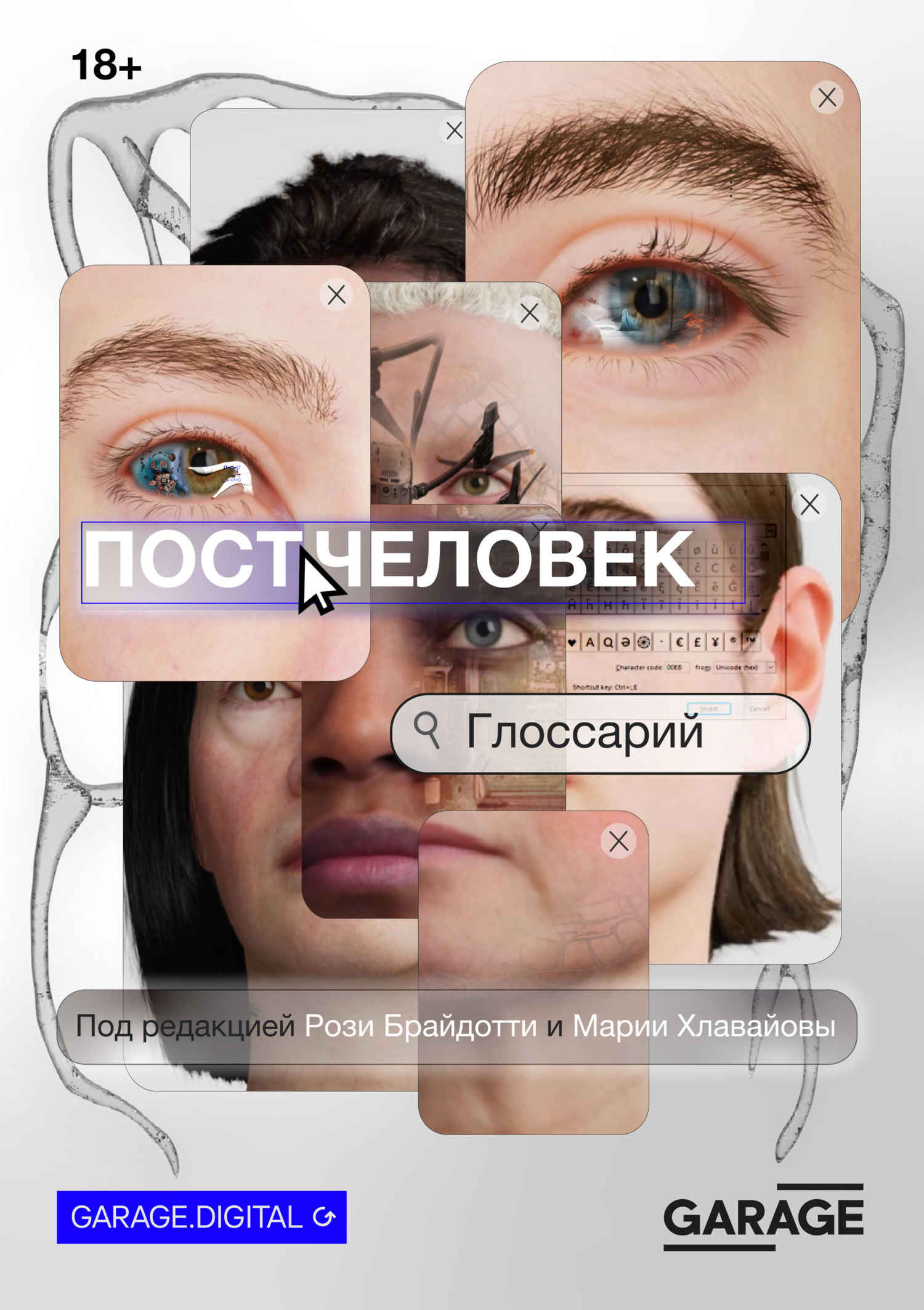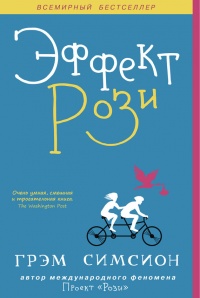Читать книгу - "Постчеловек: глоссарий - Рози Брайдотти"
Аннотация к книге "Постчеловек: глоссарий - Рози Брайдотти", которую можно читать онлайн бесплатно без регистрации
В свете новых вызовов, охватывающих современное общество, концепт человека как таковой, а также проблема его взаимодействия с искусством, точными и гуманитарными науками претерпели существенные изменения. Данный процесс, называемый «постчеловеческим состоянием», подвержен влиянию неолиберальной экономики, глобального капитализма, миграционной политики, технологического прогресса, экологических проблем, борьбы с терроризмом и т. д. «Постчеловек: глоссарий» представляет собой сборник ключевых терминов постчеловечества в контексте современного искусства и интеллектуальной сферы. Он охватывает такие широкие темы, как антропоцен, капиталоцен, экология, цифровой активизм, алгоритмическая культура и нечеловеческое. В глоссарии представлены краткие определения этих понятий и исследуются художественные, интеллектуальные и активистские подходы к решению сложных проблем «постчеловеческого состояния». Сборник помогает разобраться в изменениях, которые произошли в искусстве в контексте современных событий, связывает различные дисциплины, аудитории и критические сообщества. Рози Брайдотти (род. 1954) – философ и теоретик феминизма, ее теоретические работы повлияли на становление постгуманизма. Мария Хлавайова (род. 1971) – куратор и теоретик, основательница и художественный директор пространства BAK (Утрехт).
Riggs, D. W. and E. Peel (2016), Critical Kinship Studies: An Introduction to the Field, London: Palgrave Macmillan.
Rinelli, L. (2015), The Last Frontier: Practices of Externalization of African Migration Control within Europe and Beyond, London: Routledge.
Robbins, P. and M. Aydede (eds) (2009), The Cambridge Handbook of Situated Cognition, New York: Cambridge University Press.
Robbins, P. and S. E. Moore (2013), ‘Ecological Anxiety Disorder: Diagnosing the Politics of the Anthropocene’, Cultural Geographies, 20(1): 3–19.
Roberts, A. (2011), By Light Alone, London: Gollancz.
Roberts, С. (2008), ‘Fluid Ecologies. Changing Hormonal Systems of Embodied Difference’, in A. Smelik and N. Lykke (eds), Bits of Life: Feminist Studies of Media, Biocultures and Technoscience, Seattle: University of Washington Press.
Roberts, С. (2016), ‘Endomaterialities: The Toxic Politics of Hormones, Sex/Gender and Reproduction’, in S. Alaimo (ed.), Matter: A Handbook of Gender Studies, New York: Macmillan.
Rocamora, A. and A. Smelik (2016), ‘Introduction’, in A. Rocamora and A. Smelik (eds), Thinking Through Fashion: A Guide to Key Theorists, 1–27, London: I.B. Tauris.
Roden, D. (2012), ‘The Disconnection Thesis’, in A. Eden, J. Soraker, J. Moor and E. Steinhart (eds), The Singularity Hypothesis: A Scientific and Philosophical Assessment, London: Springer.
Roden, D. (2013), ‘Nature’s Dark Domain: An Argument for a Naturalised Phenomenology’, Royal Institute of Philosophy Supplements, 72: 169–88.
Roden, D. (2015), Posthuman Life: Philosophy at the Edge of the Human, London: Routledge.
Rodino-Colocino, M. (2006), ‘Selling Women on PDAs from “Simply Palm” to “Audrey”: How Moore’s Law Met Parkinson’s Law in the Kitchen’, Critical Studies in Media Communication, 23(5): 375–90.
Roloff, V. (1994), ‘Einleitung: Bunuels reflektierte Intermedialitat’, in U. Link-Heer and V. Roloff (eds), Luis Bunuel: Film—Literatur—Intermedialitat, 1–12, Darmstadt: Wissenschaftliche Buchgesellschaft.
Rompay, T. (van) and P. Hekkert (2001), ‘Embodied Design: On the Role of Bodily Experiences in Product Design’, Proceedings of the International Conference on Affective Human Factors Design, 39–46, Singapore.
Rose, D. B. (2006), ‘What if the Angel of History Were a Dog?’, Cultural Studies Review, 12(1): 67–78.
Rose, D. B., T. van Dooren, M. Chrulew, S. Cooke, M. Kearnes and E. O’Gorman (2012), ‘Thinking Through the Environment, Unsettling the Humanities’, Environmental Humanities, 1: 1–5.
Rose, H. and S. Rose (eds) (2000), Alas, Poor Darwin: Escaping Evolutionary Psychology, London: Jonathan Cape.
Rose, N. (2007), The Politics of Life Itself: Biomedicine, Power and Subjectivity in the Twentieth-First Century, Princeton: Princeton University Press.
Rose, N. and J. M. Abi-Rached (2013), Neuro: The New Brain Sciences and the Management of the Mind, Princeton: Princeton University Press.
Rosenblueth, A., N. Wiener and J. Bigelow (1943), ‘Behavior, Purpose, and Teleology’, Philosophy of Science, 10: 18–24.
Rosendahl Thomsen, M. (2013), The New Human in Literature: Posthuman Visions of Changes in Body, Mind and Society after 1900, London: Bloomsbury.
Rosler, M. (2013), ‘English and All That’, e-flux, 45 http://www.e-flux.com/journal/english-and-all-that/ [accessed 26 May 2016].
Rotman, B. (2008), Becoming Beside Ourselves: The Alphabet, Ghosts, and Distributed Human Being, Durham, NC: Duke University Press.
Rouch, H. (1987), ‘Le placenta comme tiers’. Langages 21(85): 71–9.
Rouvroy, A. (2011), ‘Technology, Virtuality, and Utopia: Governmentality in the Age of Autonomic Computing’, in M. Hildebrandt and A. Rouvroy (eds), Law, Human Agency and Autonomic Computing, 119–40, London: Routledge.
Rouvroy, A. (2013), ‘The End(s) of Critique. Data Behaviourism versus Due Process’, in M. Hildebrandt and K. de Vries (eds), Privacy, Due Process and the Computational Turn. The Philosophy of Law Meets the Philosophy of Technology, 143–67, Abingdon and New York: Routledge.
Rowlands, M. (2010a), ‘Consciousness, Broadly Construed’, in R. Menary (ed.), The Extended Mind, 271–94, Cambridge, MA: MIT Press.
Rowlands, M. (2010b), The New Science of Mind, Cambridge, MA: MIT Press.
Rubenstein, M. J. (2014), Worlds without End: The Many Lives of the Multiverse, New York: Columbia University Press.
Rubin, G. (1975), ‘The Traffic in Women: Notes on the “Political Economy” of Sex’, in R. R. Reiter (ed.), Toward an Anthropology of Women, 157–210, New York: Monthly Review Press.
Ruda, F., ‘Humanism Reconsidered, or: Life Living Life’, Filozofski Vestnik, http://filozofskivestnikonline.com/index.php/journal/article/viewArticle/79 [accessed 8 January 2016].
Rudwick, M. J. S. (2014), Earth’s Deep History: How It Was Discovered and Why It Matters, Chicago: University of Chicago Press.
Rueckert, W. ([1978] 1996), ‘Literature and Ecology: An Experiment in Ecocriticism’, in С. Glotfelty and H. Fromm (eds), The Ecocriticism Reader: Landmarks in Literary Ecology, Athens: University of Georgia Press: 105–23.
Rukeyser, M. (1973), Breaking Open, New York: Random House.
Rule, A. and D. Levine (2012), ‘International Art English. On the Rise – and the Space – of the Art-world Press Release’, Triple Canopy, 16, https://www.canopycanopycanopy.com/contents/international_art_english [accessed 26 May 2016].
Rust, S. A. and С. Soles (2014), ‘Ecohorror Special Cluster: Living in Fear, Living in Dread, Pretty Soon We’ll All Be Dead’, Interdisciplinary Studies in Literature and Environment 21(3) (Summer): 509–12.
Rutland, B. (2004), ‘The Transject: The Ethical Subject of Postmodernity’, in B. Gabriel and S. Ilcan (eds), Postmodernism and the Ethical Subject, Montreal: McGill-Queen’s University Press.
Said, E. (2003), ‘Introduction’, in E. Auerbach, Mimesis: The Representation of Reality in Western Literature, Princeton: Princeton University Press.
Said, E. (2004), Humanism and Democratic Criticism, New York: Columbia University Press.
Sakai, N. (1997), Translation and Subjectivity: On ‘Japan’ and Cultural Nationalism, Minneapolis: University of Minnesota Press.
Sakai, N. (2006), ‘Translation’, Theory, Culture & Society 23(2–3): 71–86.
Samson, A. (2015), ‘Erasure, an Attempt to Surpass Datafication’, APRJA Datafied Research Issue, 4(1), http://www.aprja.net/?p=2444 [accessed 23 October 2015].
Sanderson H. (2013), ‘Human Resolution’, Mute, 4 April, http://www.metamute.org/editorial/articles/human-resolution [accessed: 21 March 2016].
Sandvig, C., K. Hamilton, K. Karahalios and С. Langbort (2014), ‘An Algorithm Audit’, in S. Pena Gangadharan (ed.), Data and Discrimination: Collected Essays, 6–10, Washington: New America Foundation.
Sassen, S. (2001), The Global City. Princeton: Princeton University Press.
Sassen, S. (2014), Expulsions: Brutality and Complexity in the Global Economy, Cambridge, MA: Harvard University Press.
Sassen, S. (2015), ‘Who owns our cities – and why this urban takeover should concern us all’, Guardian, 24 November, https://www.theguardian.com/cities/2015/nov/24/who-owns-our-cities-and-why-this-urbantakeover-should-concern-us-all [accessed 28 April 2017].
Sassen, S. (2016a), ‘The Global City: Enabling
Прочитали книгу? Предлагаем вам поделится своим впечатлением! Ваш отзыв будет полезен читателям, которые еще только собираются познакомиться с произведением.
Оставить комментарий
-
 Илья12 январь 15:30
Книга прекрасная особенно потому что Ее дали в полном виде а не в отрывке
Горький пепел - Ирина Котова
Илья12 январь 15:30
Книга прекрасная особенно потому что Ее дали в полном виде а не в отрывке
Горький пепел - Ирина Котова
-
 Гость Алексей04 январь 19:45
По фрагменту нечего комментировать.
Бригадный генерал. Плацдарм для одиночки - Макс Глебов
Гость Алексей04 январь 19:45
По фрагменту нечего комментировать.
Бригадный генерал. Плацдарм для одиночки - Макс Глебов
-
 Гость галина01 январь 18:22
Очень интересная книга. Читаю с удовольствием, не отрываясь. Спасибо! А где продолжение? Интересно же знать, а что дальше?
Чужой мир 3. Игры с хищниками - Альбер Торш
Гость галина01 январь 18:22
Очень интересная книга. Читаю с удовольствием, не отрываясь. Спасибо! А где продолжение? Интересно же знать, а что дальше?
Чужой мир 3. Игры с хищниками - Альбер Торш
-
 Олена кам22 декабрь 06:54
Слушаю по порядку эту серию книг про Дашу Васильеву. Мне очень нравится. Но вот уже третий день захожу, нажимаю на треугольник и ничего не происходит. Не включается
Донцова Дарья - Дантисты тоже плачут
Олена кам22 декабрь 06:54
Слушаю по порядку эту серию книг про Дашу Васильеву. Мне очень нравится. Но вот уже третий день захожу, нажимаю на треугольник и ничего не происходит. Не включается
Донцова Дарья - Дантисты тоже плачут





